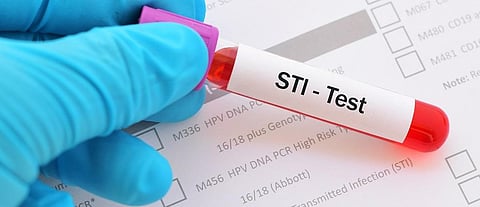

More than one million new cases of curable sexually transmitted infections are diagnosed everyday in the age group of 15-49 years. The World Health Organization (WHO) came out with this finding in a new report on four sexually transmitted infections’ (STIs) burden in 2016. The total estimated burden in the year was 376.4 million.
There were 127 million new cases of chlamydia, 87 million cases of gonorrhoea, 6.3 million of syphilis and 156 million of trichomoniasis.
Approximately 13.5 per cent (50.8 million) of these infections occurred in low-income countries, 31.4 per cent (118.1 million) in lower middle-income countries, 47.1 per cent (177.3million) in upper middle-income countries and 8 per cent (30.1 million) in high-income nations, according to the report.
The research also showed that the prevalence of chlamydia, gonorrhoea and trichomoniasis increased more in women than men.
Chlamydia, syphilis and gonorrhoeaare bacterial infections spread through vaginal, anal or oral sex. And trichomoniasis is caused by a parasite called Trichomonasvaginalis.
Like Chlamydia, syphilis and gonorrhoea, trichomoniasis also spreads through sexual contacts. Both males and females are susceptible to all these four infections.
On an average, one in every 25 people in the world has at least one of these infections and some have more than one. And there is no subsequent decline in the condition since the last research in 2012.
“We’re seeing a concerning lack of progress in stopping the spread of sexually transmitted infections worldwide,” said Peter Salama, executive director for Universal Health Coverage and the Life-Course at WHO. “This is a wake-up call for a concerted effort to ensure everyone, everywhere can access the services they need to prevent and treat these debilitating diseases.”
STIs spread through unprotected sexual contact and can also be transmitted during pregnancy and childborn or in case of syphilis, through contact with infected blood.
If untreated, STIs can lead to many health problems including infertility, problems in pregnancy, and increased risk of HIV. According to an estimation mentioned in the WHO report, syphilis caused two lakh stillbirth and newborn deaths in 2016.
All bacterial STIs can be treated and cured with widely available medications. However, an article published by WHO stated that recent shortages in the global supply of benzathine penicillin, which is an antibiotic useful for the treatment of a number of bacterial infections, have made it more difficult to treat syphilis.
Rapidly increasing resistance to gonorrhoea treatments is also a growing health threat. The World Health Assembly in 2016 aims to take necessary steps to end STIs as public health concern by 2030.